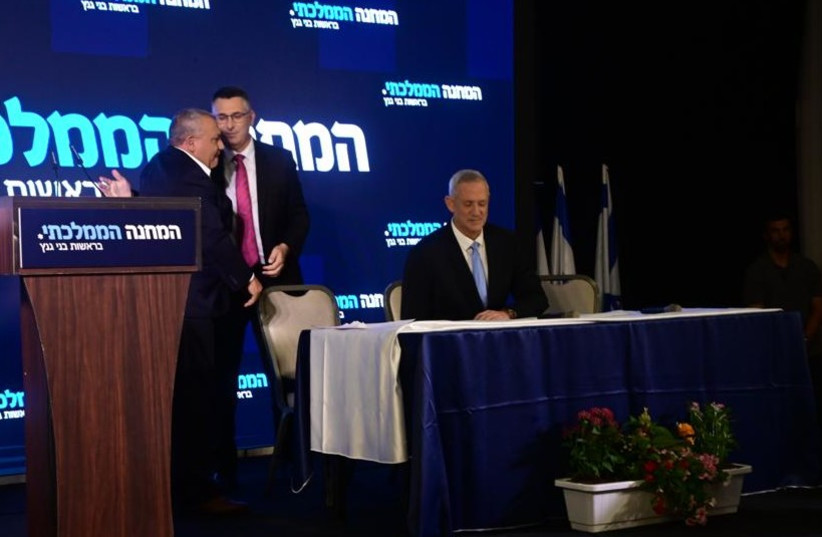The National Unity party led by Defense Minister Benny Gantz will not limit itself to a minimum number of seats in the upcoming election in order to demand that Gantz receive the mandate to form a government, the party's number two, Justice Minister Gideon Saar, said on Saturday.
Sa'ar's comment, which he made on Channel 12's Meet the Press, marks a change in the party's policy, after its number three, former chief of staff Gadi Eisenkot, said a number of weeks ago that the party would need to receive a number in the high teens in order to demand the premiership.
"I do not cast numerical restrictions ahead of time. Our aspiration, which is right and necessary, is for us to receive more mandates. That is our main effort. But I do not cast restrictions," Sa'ar said.
The party has been receiving between 11-13 seats on average. In an interview on September 10, Eisenkot said: "I was [former prime minister] Arik [Ariel] Sharon's military secretary during his first tenure as prime minister, he came with 19 mandates and ruled with an iron fist. The number in my opinion has to be in the high teens. 10 or 12 mandates in my opinion are not legitimate," Eisenkot said.
One of National Unity's most prominent campaign arguments is that only Gantz can form a stable government, and yet many politicians, including some from National Unity itself, agreed that the former coalition's instability was partly because the former prime minister, Naftali Bennett, was the head of a party that only won seven seats, and de-facto only had six MKs in the coalition.

The party is thus facing criticism for aspiring to make Gantz the next prime minister, despite it being far smaller than both Yesh Atid and the Likud.
In an interview on KAN News on Saturday night, Gantz himself said about Lapid that "I enabled him to become prime minister, both by forming the Change Government and by not choosing a different alternative – I could have been prime minister right now with the Likud in an agreement that I did not want," he said, referring to failed attempts by the Likud to form an alternative government before the Knesset dispersed on June 30.
"I think that after the election there will be a different outcome, but time will tell," he said.
